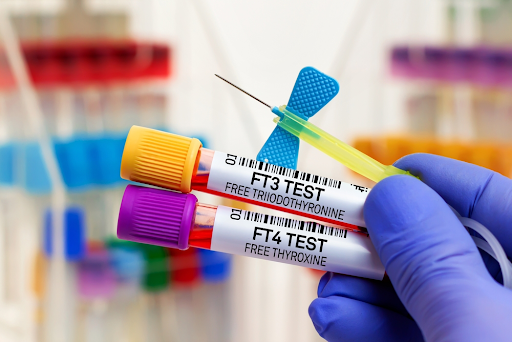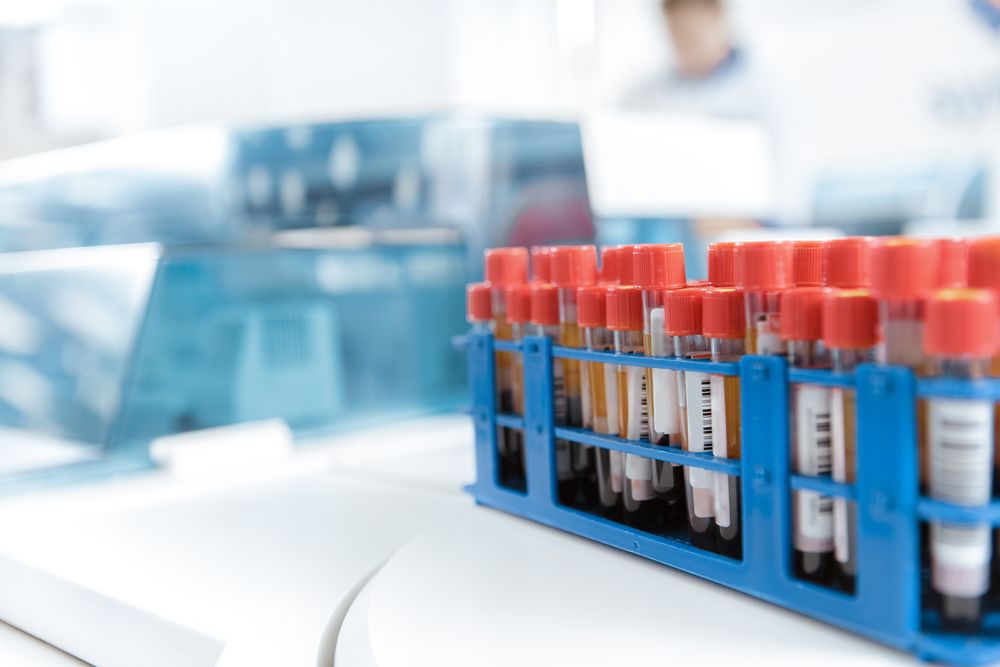What Can a Thyroid Function Test Detect?

Thyroid function plays a crucial role in regulating metabolism, energy levels, and overall health. When imbalances occur within this small, butterfly-shaped gland located in the neck, it can lead to a range of symptoms and health issues. Fortunately, modern medicine offers a diagnostic tool known as thyroid function tests to evaluate the health and performance of the thyroid gland. In this comprehensive guide, we delve into the intricacies of thyroid function tests, exploring what they can detect, how they are conducted, and what their results signify.
What is the Thyroid?
The thyroid gland is a vital component of the endocrine system,
responsible for producing hormones that regulate various bodily
functions. Situated at the base of the neck, just below the Adam's
apple, the thyroid gland secretes hormones, primarily thyroxine (T4)
and triiodothyronine (T3), which play pivotal roles in metabolism,
growth, and energy regulation.
Thyroid hormones influence nearly every cell in the body, impacting
heart rate, body weight, temperature, and mood. When the thyroid
gland malfunctions, either by producing too much hormone
(hyperthyroidism) or too little (hypothyroidism), it can lead to a
host of symptoms ranging from fatigue and weight fluctuations to
anxiety and depression.
What are Thyroid Function Tests?
Thyroid function tests are diagnostic tools used to assess the
activity and performance of the thyroid gland. These tests measure
levels of thyroid hormones and other associated substances in the
blood to determine if the thyroid is functioning optimally or if
there are any abnormalities present.
Thyroid function tests typically include the following components:
Thyroid-stimulating hormone (TSH) test
The pituitary gland secretes TSH, which causes the thyroid to generate T4 and T3. Elevated TSH levels may indicate an underactive thyroid, while low levels may suggest an overactive thyroid.
T4 and T3 tests
These tests measure the levels of T4 and T3 hormones in the blood. Abnormal levels may indicate hyperthyroidism or hypothyroidism.
Thyroid antibody tests
These tests detect the presence of antibodies that attack the thyroid gland, indicating autoimmune thyroid disorders such as Hashimoto's thyroiditis or Graves' disease.
How are Thyroid Tests Done?
Thyroid function tests are relatively simple and straightforward
procedures that involve a blood collection
During the testing process, you can anticipate the following:
Preparation
In most cases, no special preparation is required for thyroid function tests. However, your healthcare provider may advise you to avoid certain medications or supplements that could interfere with the results.
Blood Collection
A healthcare professional will draw a small sample of blood from a vein in your arm using a sterile needle and syringe. The procedure is quick and generally causes minimal discomfort.
Laboratory analysis
A laboratory receives the blood sample and analyzes it. Technicians will measure the levels of TSH, T4, T3, and other relevant markers to assess thyroid function.
Results
Once the analysis is complete, your healthcare provider will review the results with you and discuss any implications or next steps.
Is Fasting Required for a Thyroid Test?
One common misconception surrounding thyroid function tests is
whether fasting is necessary before undergoing testing. While
fasting is often required for certain blood tests, such as lipid
panels or glucose tests, it is typically not necessary for thyroid
function tests.
Fasting or specific dietary restrictions are generally not required
for thyroid function tests, as they measure hormone levels that
remain relatively stable regardless of food intake. However, it's
essential to follow any specific instructions provided by your
healthcare provider to ensure accurate results.
What Do My Thyroid Test Results Mean?
Understanding your thyroid test results is crucial for assessing thyroid health and determining appropriate treatment options. Here's what various thyroid test results may indicate:
TSH levels
Elevated TSH levels may suggest an underactive thyroid (hypothyroidism), while low TSH levels may indicate an overactive thyroid (hyperthyroidism).
T4 and T3 levels
Abnormal levels of T4 and T3 hormones may also indicate thyroid dysfunction. High levels may suggest hyperthyroidism, while low levels may indicate hypothyroidism.
Thyroid antibody levels
Elevated levels of thyroid antibodies may indicate autoimmune thyroid disorders such as Hashimoto's thyroiditis or Graves' disease.
Conclusion
Thyroid function tests serve as invaluable tools for assessing
thyroid health and diagnosing thyroid disorders. By understanding
what thyroid function tests can detect, how they are conducted, and
how to interpret the results, individuals can take proactive steps
to manage their thyroid health effectively.
If you're experiencing symptoms of thyroid dysfunction or have
concerns about your thyroid health, don't hesitate to consult with a
healthcare professional. With timely diagnosis and appropriate
treatment, you can optimize your thyroid function and enjoy improved
overall well-being.
If you're looking for a reliable place to get your
thyroid checked,
Asto Labs is a great choice. They're known for being really accurate
and thorough with their tests. With Asto Labs, you can trust that
your results will be spot-on. That way, you can make smart decisions
about your health and feel confident about it.





